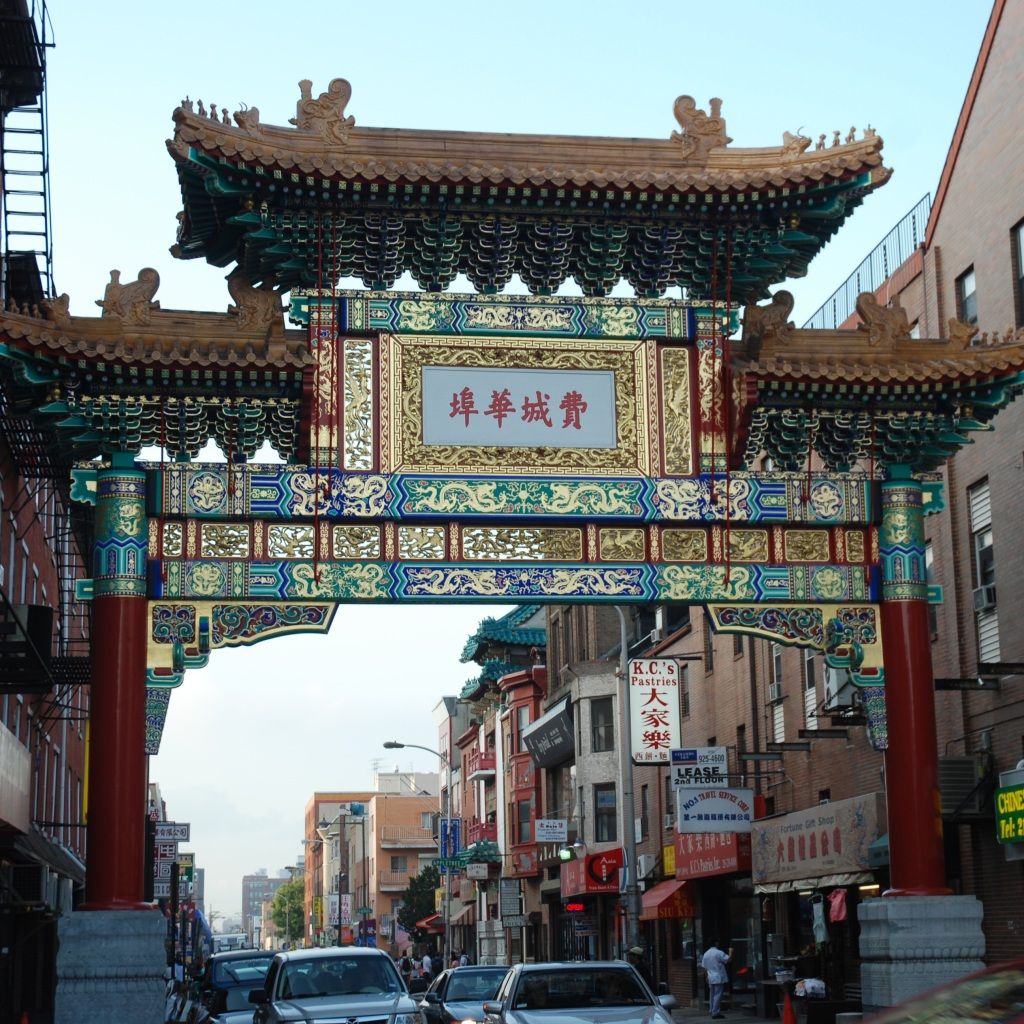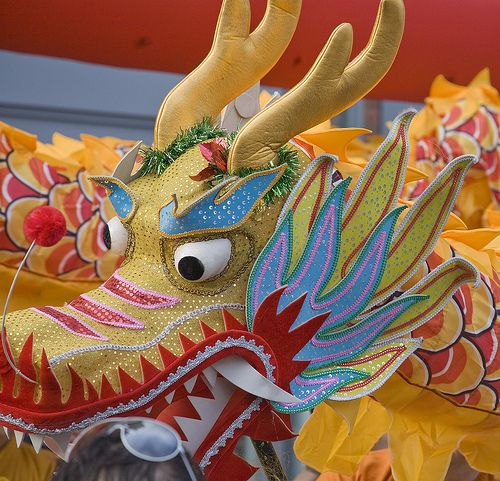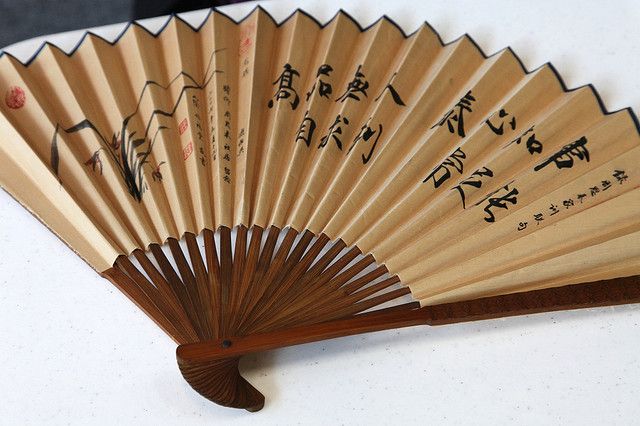Friday, November 2, 2012
How to be a Chinese
The Chinese culture has been part of the earliest civilizations in the world. Due to its roots that can be traced back from ancient times, the Chinese culture has continued to refine itself into a rich, awesome, distinct, and superior state that it is known today.
China has the largest population in the world, but the Chinese are not only limited within their land's borders. The Chinese people can be found in many different countries, and instead of mingling with the rest of the people, they have established their own districts in foreign countries as can be witnessed by the existing Chinatowns around the world.
The Chinese Expatriates
Even in my own country, the Philippines, live many Chinese people including myself. No, I wasn't born in China, but my grandparents were. And many years ago, they migrated here to start a living. I was born here in the Philippines, yet I was raised a Chinese. The Chinese love their culture very much. Being away from their motherland does not mean that they are going to give up their Chinese lifestyle.
Yet, since many generations of Chinese descent are already being born outside China, some of them aren't anymore fully acquainted with their roots. Many Chinese intermarry, despite to many traditional Chinese parents' forbiddance. Yes, the traditional Chinese don't encourage interracial marriage. They are afraid that their Chinese ways will be lost when mixed with other cultures, which is already slowly happening in my generation.
Despite the assimilation of the present Chinese with other cultures, I believe that many of them are tracing back to their roots - I'm quite sure that the 45 million internet users who googled "How to be Chinese" would agree with me that this is the case. Whether you're a Chinese who wants to get to know about the Chinese culture, or someone who wants to know his/her Chinese spouse's culture, this article is for you. In here, I will write about how it really is to be a Chinese and what is it all about.
The Chinese Language
The most important part of the Chinese culture is its language. Since many traditional Chinese would want their own kind to be their children's future spouse, the first thing that they are going to look for their children's prospective spouse is whether he or she is a Chinese. And to be a Chinese means the person should know how to speak like one. In our Chinese community, there is a common expression of the elderly toward the young generation who isn't fluent in the language. It goes something like, "Aren't you a Chinese?" This expression puts emphasis on the strong bond between language and nationalism. The young generation has adapted fairly well in their country of residence. They go to school together with many of its local residents, thus, the language they have been accustomed to is the language of their peers. When they get home, they continue to use the language of their peers, often refusing to speak to their parents using the Chinese language. They may use both languages in their everyday conversations, perhaps a mixture of Chinese and their local language within a sentence, leading to the lack of practice of their mothertongue.
The Chinese language reflects Chinese values and beliefs. There are many common terms and idiomatic expressions that aren't readily translated into English. For instance, the word "yuan fen" pertains to whether you are destined or fated to be with someone or something. If you have good "yuan fen" with your lover, then it means that you are destined to be married with each other. If you always cross paths with someone, the Chinese would also say the same thing. If no matter how hard you try to earn money but always fail, they would say that you don't have "yuan fen" with money. It shows how the Chinese believe in destiny. Another common phrase is "Hao xin you hao bao." It roughly translates into "Good heart has good pay," showing how the Chinese believe in good karma. Of course, you don't have to absolutely believe in fate or in karma, but these are just how the Chinese like to describe life and may also just be a matter of expression. As with any other culture, studying a language is studying the nation's soul.
Chinese Festivities and Events
Each year, there are certain days of the Chinese Lunar Calender that mark some Chinese festivities and events. These are the Chinese New Year, Chinese Mooncake Festival, and Chinese Ghost Month. Of course, there are many other festivities of the Chinese, but the ones I've mentioned are heavily celebrated all around the world by the Chinese. Each festivity includes certain stories and traditions. I highly enjoy these festivities (well, except for the Chinese Ghost Month) because it's a chance of getting in touch with the family and Chinese friends. If you aren't a Chinese but still wants to get to know about these festivities, I suggest you visit Chinatown (or maybe China) during the events and see for yourself how they celebrate these holidays.
For a more comprehensive description of Chinese Mooncake Festival, you may visit this lens: The Moon Represents the Hearts of the Chinese People: An Introduction to Mid-Autumn Festival by cheerfulnuts.
In the near future, I will also post links to other articles pertaining to chinese festivities so you will have an in-depth understanding about different Chinese occasions.
Chinese Arts and Entertainment
You don't need to watch every Chinese show or listen to every Chinese song in order to be a "true Chinese." But knowing about some of the Chinese arts and entertainment is surely a bonus for you to get the feel of your roots.
When you watch Chinese movies, you will definitely get to know more about the Chinese values. Of course, it's another way to practice your Chinese listening skills. Many movies and TV series of the Chinese come with Chinese subtitles. I'm not exactly sure why, but the Chinese are already so accustomed to watching TV with big Chinese characters being flashed at the lower part of the screen.
When it comes to the songs, in my personal view, it's better to first get to know about the classics. Going to Chinese gatherings such as birthdays and weddings, you would always hear the classics being sung or played in the background. And to be able to at least identify the title shows how well exposed you are to the Chinese music. One example of a highly popular Chinese classic is "Ye Liang Dai Biao Wo De Xin" performed by Teresa Teng. This is one song that every Chinese must have heard once in their life. For in most gatherings, this is a song commonly being played.
When it comes to practicing the arts per se, Chinese calligraphy, or brush calligraphy, is one of its highlights. It is a method of the writing Chinese characters using a brush. The brush is held in a special way, very different to holding an ordinary pen. Each stroke of the Chinese character is carefully written and with the right balance of depth and shape of the strokes results into a beautiful Chinese character. This art is being taught in most Chinese schools. There are even competitions being held inter-school to determine the best calligrapher. I like writing calligraphy, as it helps me remember the Chinese characters better. It's one way of appreciating the Chinese language and seeing the beauty of the characters.
Final Note
Why do traditional Chinese (particularly the elders) fear of losing their culture? Is it that bad to not know Mandarin, to not know Teresa Teng, or to not know how to write calligraphy? Why are they afraid of seeing their children marry someone from a different culture? Isn't that part of living in another country?
I was often asked by my Filipino friends why we weren't allowed to marry their people. I often find myself scratching my head, not knowing how to answer. The answer is unclear, and isn't that simple. Perhaps the Chinese believe that knowing ones roots is a crucial part of ones identity, and to marry someone from another culture may slowly dissipate that identity. Perhaps the Chinese don't want their grandchildren to grow up believing that they are Filipino, American, Canadian, British, or Malaysian, etc. when in fact the blood flowing inside their veins is Chinese.
Whatever the reason is, it seems to me that the Chinese culture is one culture that refuses to be overpowered by another. Just like in any two different cultures, there are some values that are considered taboo among the Chinese yet are alright for foreigners, and the other way around. In my own view, I believe that whether you marry a Chinese or a non-Chinese, what matters is you are able to gain a deep understanding about your own culture.
Labels:
expatriates
Subscribe to:
Post Comments (Atom)



No comments:
Post a Comment